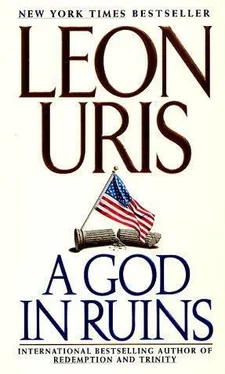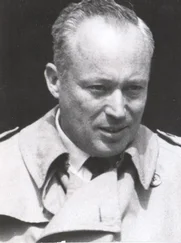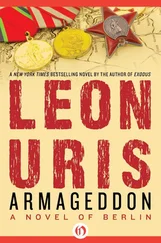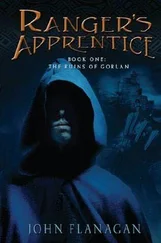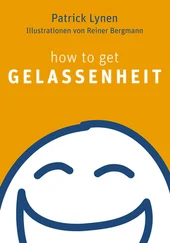“That is extremely decent of you, Governor,” Greer exploded. “But do you have any idea of the broadsides these people are going to fire at you on the Internet and TV and in the press? And don’t tell me the American people can tell the difference.”
“Quinn, if Tomtree found out, he’d want to keep a lid on it until after the election. Then he’d let it fly. This is a real ace in the hole. We squeeze just a little bit on the debate negotiations,” Mal said.
“I said no, and I mean no. Maybe I’ve come this far on the dead bodies of those kids in Six Shooter Canyon. No, no, no, no!”
“Vintage O’Connell!” Greer snapped. “Woweeeee!”
The four of them gasped at each other, as fighters who had gone a nonstop round.
“Maybe it is vintage O’Connell,” Rita said. “Maybe a lot of people out there are beginning to understand what kind of man he is. Maybe he’s the last honest politician the world will ever see. Maybe the thought of hurting me makes it too difficult for him to bear. Maybe he is self-destructing. But he’s a Marine. Take him or cut bait.”
Oh, man, did Rita chill them out.
“I need your promise you’ll never mention Pucky or your resignation,” Quinn said.
“Shit,” Mal groaned. “All right, include me in. You’ve my word.”
“It remains between us,” Greer promised.
At the last moment Greer decided she needed Rae O’Connell with her and Mal in Chicago. Rae, a successful, computer oriented businesswoman, had run the electronics at her dad’s Denver headquarters. After she gleaned and analyzed the incoming messages, she gave them to Greer, in order of priority.
The last time Greer had been on the road without Rae, her work had backed up unmercifully.
Overnight bags packed and ready to go, Greer had the charter jet switch to Colorado Springs in order to avoid a possible media alert.
Their red-eye express set down in the private-plane section of Midway Airport, where a limo pulled alongside, and they drove off to the Schweitzer Mansion on Lake Shore Drive, a Republican half-way house, and site of secret rendezvous.
The mansion was century-old-mahogany- and tapestry-clad. Each bedroom held a ponderous four-poster, and each bathroom had a freestanding sink, pipes to heat towels, and crested linens. It said “robber baron” all over it. The present Schweitzers lived magnificently on the old fortune. They were Chicago denizens of high order.
Alma, a robust former mezzo soprano greeted them and ushered each to their suites. Kurt Schweitzer was in Washington until after the election.
Darnell Jefferson would be arriving at dawn. A meeting in Mr.
Schweitzer’s study was called for ten in the morning.
Greer, Mal, and Rae went into power sleeps, after which they loaded up on orange juice and danish followed by a large transfusion of coffee.
Ten o’clock.
Darnell spilled out of Mr. Schweitzer’s chair.
“Greer!”
Jesus, he looked great, she thought. The wiry, bubbly white hair against his milk chocolate skin. Even in relaxed clothing he appeared like a model.
“Hi, handsome,” she said, running her fingers through his hair and giving him a hug and peck. “This is Professor Maldonado, and this is Rae O’Connell, the governor’s daughter.”
“It’s an honor to meet you,” Darnell said to Mal. “I have a pair of your figurines in my home.”
“Really? Which ones?”
“Russian ladies.”
Mal smiled. “Yeah,” he said, “yeah.”
“I asked Mrs. Schweitzer last night,” Rae said, “to set me up as close to you as possible on a secure phone. I’ll have to run messages to Greer during your meeting.”
The study was pure Teddy Roosevelt, with stuffed heads of boars and lions and buffalo staring down at them and photographs of safaris, killing safaris. . good trip, fine .. .
“You know,” Darnell said, “every campaign plays hide-and seek on the debate, maneuvering for an edge. In the end there is always a debate. I hope we can hash it out.”
“We know you are ready to shotgun the country with ads saying Quinn was the one refusing to debate,” Greer said.
“Our attitude here, now, is that you really don’t want the debate,” Mal said.
“I refer to one debate,” Darnell said, “because two simply can’t be fit in. Here is our proposal for site and rules.”
“And here is ours,” Greer said.
Darnell’s paper ruled out university campuses. Universities were too volatile and apt to be too liberal. The cities suggested were San Diego, Portland, San Antonio, St. Paul, Baltimore, and Montgomery.
The debate would last ninety minutes, and there would be alternative moderators.
Three minutes on each new subject. Three-minute rebuttal. The last fifteen minutes, questions from the audience.
Rae came in from the adjoining office and laid a half dozen notes before Greer. She scribbled on two of them and set two aside. “This should excite you, Darnell. We have just qualified for federal matching funds for the balance of the campaign.” “The proposal?”
“Bullshit,” Mal said characteristically. “Montgomery, St. Paul, Portland. Why don’t we hold it in the middle of the Amazon? Besides, your October 11 date could well be during a World Series game. Otherwise, there is absolutely nothing we agree with in the balance of this proposal.”
Darnell held his hand up to be able to read the counterproposal. Rae came in with a half dozen more notes, two for Mal.
Darnell set their proposal down. “Are you serious?” he asked.
“Well, your proposal was pretty sanitized.”
“And yours, revolutionary.”
“All we are trying to do,” Mal said, “is bring the art of debate up to where it was a hundred and fifty years ago.”
“Those kind of debates are won by artful dodgers,” Darnell said.
“I’d say both of the candidates qualify,” Greer said.
Darnell glared down at the paper on the desk. They would vie for a single three-hour debate with a twenty-minute break in the middle. Only one venue was proposed, the Celeste Bartos Forum Hall in the New York Public Library.
It would be an open debate. Either candidate could bring up any issue and argue it. Either candidate could rebut. The deadline would be five minutes. If a candidate ran under five minutes, he would be given credit for the time; if he ran over it, it would be deducted from his total speaking time.
One moderator.
“This is a prelude to a shouting match,” Darnell said strongly. “It’s a street brawl.”
“No,” Mal said, “we’re talking about getting truth to the people.”
“Truth is what we all seek,” Darnell thought, but declined to say it. They weren’t budging. Perhaps, he thought, they believed they had an edge. But wait! They have more to gain than we have. We’re out to neutralize this debate by cluttering.
Rae returned with an urgent message. Greer studied it, contemplated, then arose. “I have to take care of something,” she said. “It will take a few minutes, maybe more. You guys keep going and I’ll catch up.”
Mal faced Darnell, Darnell faced Mal. Darnell wondered if they were setting him up.
Knowing the Republicans were about to inundate the airways with nasty advertisements, Mal had formed a “Truth Squad” which had obtained copies of about half of the ads. Quinn would be ready to react instantly. Yet President Tomtree was still the power and owned the machinery to maul and grind under his opponent by sheer weight of numbers of dollars and had little appetite to be bound to the truth.
Читать дальше
